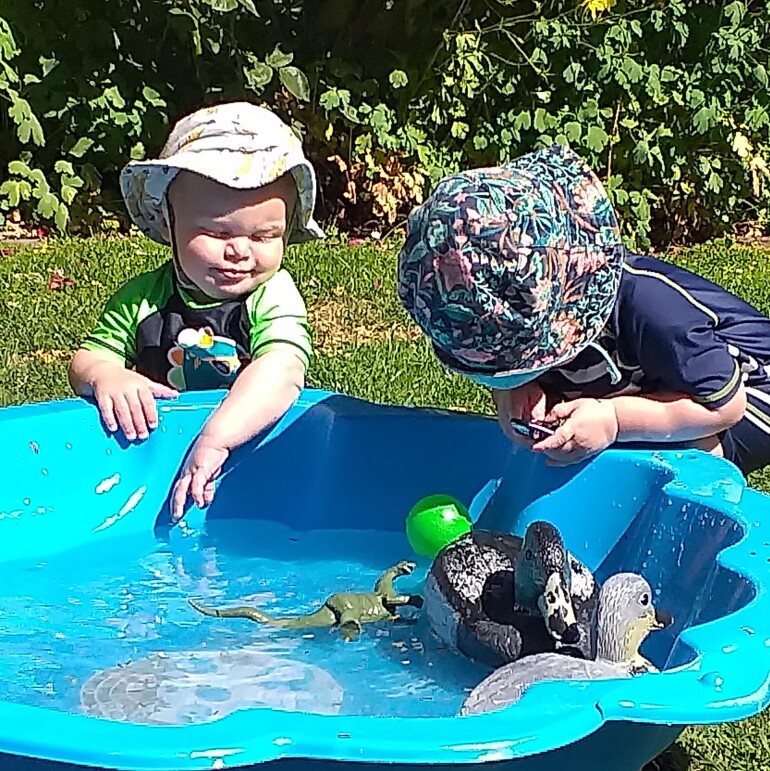News And Events

Water Play Korikori Wai
30 December 2023Ensuring children are kept safe around water activities means they can actively participate and enjoy the soothing and learning benefits of water play.
Water play can provide children with a wonderful sensory and calming experience. In a homebased setting, spontaneous water play activities can occur throughout the day, with the close supervision of the Educator. We can be mindful of water conservation by providing a tub of a limited supply of water along with pouring jugs and containers. Here’s some ideas for equipment to support water play:
- water trough, baby bath or container to hold water
- plastic, wood or metal items that won’t break or rust
- cups, spoons, bottles, colanders, sieves and funnels
- sponges, waterwheels and watering cans
- squeezy bottles, e.g. shampoo bottles (rinsed well)
- natural materials e.g. shells, stones, seaweed and driftwood
- soap or detergent to make bubbles.
Water play can help children to:
- develop hand-eye coordination
- learn to lift, pour and control water
- understand measuring, estimating and volume
- understand heavy/light, float/sink, full/empty and shallow/deep
- learn to concentrate and solve problems
- learn to share and cooperate with others.
The safety and supervision of children in and around water is of the highest priority. This relates to water play, paddling pools, swimming pools and excursions near water. To help reduce any potential risk and ensure children’s safety at Nurtured at Home, the following guidelines are followed:
- Children are actively supervised at all times while in or around water.
- Children are not permitted to be in a pool over the height of 400 mm in height without the written permission from their parents. Ratios must not exceed 1:4.
- Water troughs, containers and paddling pools will be supervised at all times and will be emptied onto garden areas after use. These are stored to prevent collection of water.
- A risk assessment will be conducted prior to any excursion taking place near water.
- Fish ponds or similar water features that collect or fill with water are securely covered to support the weight of an adult.


